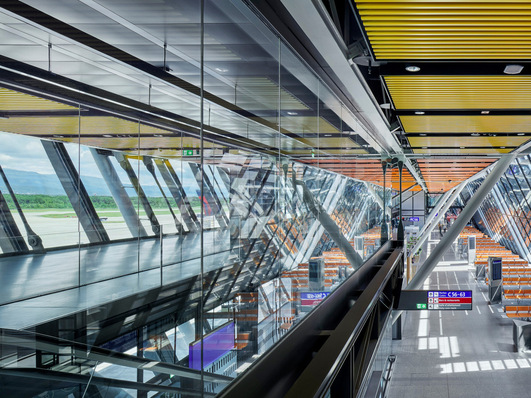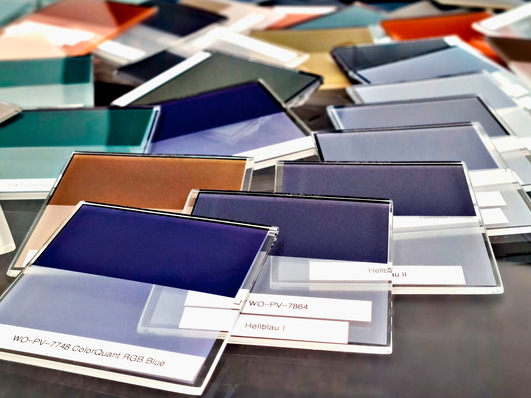1. Glass walls
In order to optimally combine spaciousness and transparency with sound insulation, walls made of glass are particularly suitable for interiors. In some areas, such as the bedroom, frosted glass is a good choice. The opaque material protects against prying eyes, but is at the same time translucent. "If you want, you can also use switchable glass, which uses electricity to change its transparency at the touch of a button," explains Jochen Grönegräs, General Manager of the German Federal Flat Glass Association (BF).

BF/Semco Glas
2. Interior windows
While large-format glazing is no longer a problem nowadays thanks to modern insulating glass technology, older buildings still have poor lighting conditions due to older, small window glazing. Especially in the case of some floor plans, it is therefore worth considering glazing for interior, non-load-bearing walls. The transparent material brings daylight into more remote areas of the home.
3. Furniture

BF/Frerichs Glas GmbH
Large rooms can be optimally divided by customised shelving solutions made of glass without obstructing the view. "It is important not to overload the individual elements in order to have as much effect as possible," Grönegräs emphasises. But tables and other living elements are also no problem when cleverly combined with other materials such as wood or plastics.
4. Bathroom
In the sanitary area, glass is the ideal material. An essential element is a glass shower, which transforms your bathroom into a home spa. Not only does a fully glazed, floor-to-ceiling and frameless glass shower increase exclusivity, the room itself also appears larger. Small bathrooms in particular benefit from this. Wall panelling made of reverse-lacquered glass is also popular in bathrooms. But washbasins and fittings made of a material mix such as chrome/glass or stainless steel/glass are also real eye-catchers.
5. Staircases
The modern material glass is also becoming more and more popular for staircases. On the one hand, it can be used as a brightening element to naturally illuminate the usually dark staircase with wall glazing. On the other hand, stair treads, banisters and even complete staircases can be made of glass.

BF/Frerichs Glas GmbH
6. Kitchen
When glass is used in the kitchen area, the positive material properties in terms of hygiene, ease of cleaning and design diversity are exploited - for example, as a wall panel, as a scratch-resistant worktop surface or for storage surfaces. "The use of glass in the kitchen area is increasing significantly," concludes the glass expert.
Did you know about the GW News newsletter?













